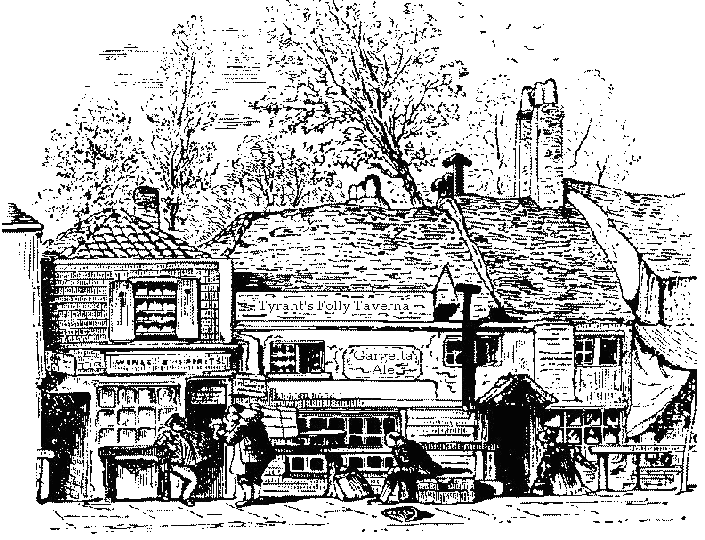![]()

When the vine had been first brought by Dionysus from the Red Sea into Greece most men perversely turned to unmeasured enjoyment of it, and drank it unmixed. Some, in their insane perversity, became delirious while others became like corpses they were so drunk. But a few weeks later, when some of the men were drinking at the seashore, a rain-storm fell upon them and broke up the party, but it also filled up the large bowl they were drinking from, which still had a little of Dionysus' potent wine left in it. After the weather cleared they returned to the same place, and tasting the mixture of wine and water they found it as enjoyable as the former but a lot less painful. When the unmixed wine is poured during the dinner the Greeks call upon the name of the good divinity, doing honor to the divinity who discovered the wine; he was Dionysus. But with the first cup of mixed wine given after the dinner they call upon Zeus the Savior, because they assume that he, as the originator of rainstorms, was the creator of the painless mixture derived from the mixing of wine and rain.
Before thermometers were invented, brewers would dip a thumb or finger into the mix to find the right temperature for adding yeast. Too cold, and the yeast wouldn't grow. Too hot, and the yeast would die. This thumb in the beer is where we get the phrase "rule of thumb".
In English pubs, ale is ordered by pints and quarts. So in old England, when customers got unruly, the bartender would yell at them to mind their own pints and quarts and settle down. It's where we get the phrase "mind your P's and Q's".
In Baltimore, in the mid 1800's there was a man who sold corpses to the hospital for research. He stored the cadavers in cheap whiskey to ferment them before turning them over to the researchers. He then sold the whiskey to the medical students...thus the term "rot gut"
After consuming a bucket or two of vibrant brew they called aul, or ale, the Vikings would head fearlessly into battle often without armor or even shirts. In fact, the term "berserk" means "bare shirt" in Norse, and eventually took on the meaning of their wild battles.
In 1740 Admiral Vernon of the British fleet decided to water down the navy's rum. Needless to say, the sailors weren't too pleased and called Admiral Vernon, Old Grog, after the stiff wool grogram coats he wore. The term "grog" soon began to mean the watered down drink itself. When you were drunk on this grog, you were "groggy", a word still in use today.
Many years ago in England, pub frequenters had a whistle baked into the rim or handle of their ceramic cups. When they needed a refill, they used the whistle to get some service. "Wet your whistle", is the phrase inspired by this practice.
Early quality control left something to be desired. In the Middle Ages, when an English ale house had a new brew an official ale tester would pour a tankard of ale on a wooden bench and then sit down wearing special leather breeches. If his breeches were stuck after a certain period of time it meant the brew was sugary and weak and official approval would be denied.
The flag flying over Fort McHenry that was Francis Scott Key's inspiration for The Star Spangled Banner was sewn in a brewery. In addition, after the battle, Key went to the Fountain Inn, a pub in Baltimore, to polish the rough draft of our national anthem. That seemed an appropriate place to work on the composition, since the tune of The Star Spangled Banner is taken from an old English drinking song!
Fill with mingled cream and amber,
I will drain that glass again.
Such hilarious visions clamber
Through the chamber of my brain -
Quaintest thoughts - queerist fancies
Come to life and fade away;
What care I how time advances?
I am drinking ale today.
-Edgar Alan Poe
From the bonny bells of heather,
They brewed a drink long-syne,
Was sweeter far than honey,
Was stronger far than wine.
They brewed it and they drank it,
And lay in blessed swound
For days and days together
In their dwellings underground.
-R.L. Stevenson
The horse and mule live thirty years
And never knows of wines and beers.
The goat and sheep at twenty die
Without a taste of scotch or rye.
The modest, sober, bone-dry hen
Lays eggs for noggs and dies at ten.
But sinful, ginful, rum-soaked men
Survive three-score years and ten.
And some of us...though mighty few
Stay pickled 'til we're ninety-two!
-Draegar Bloodknife